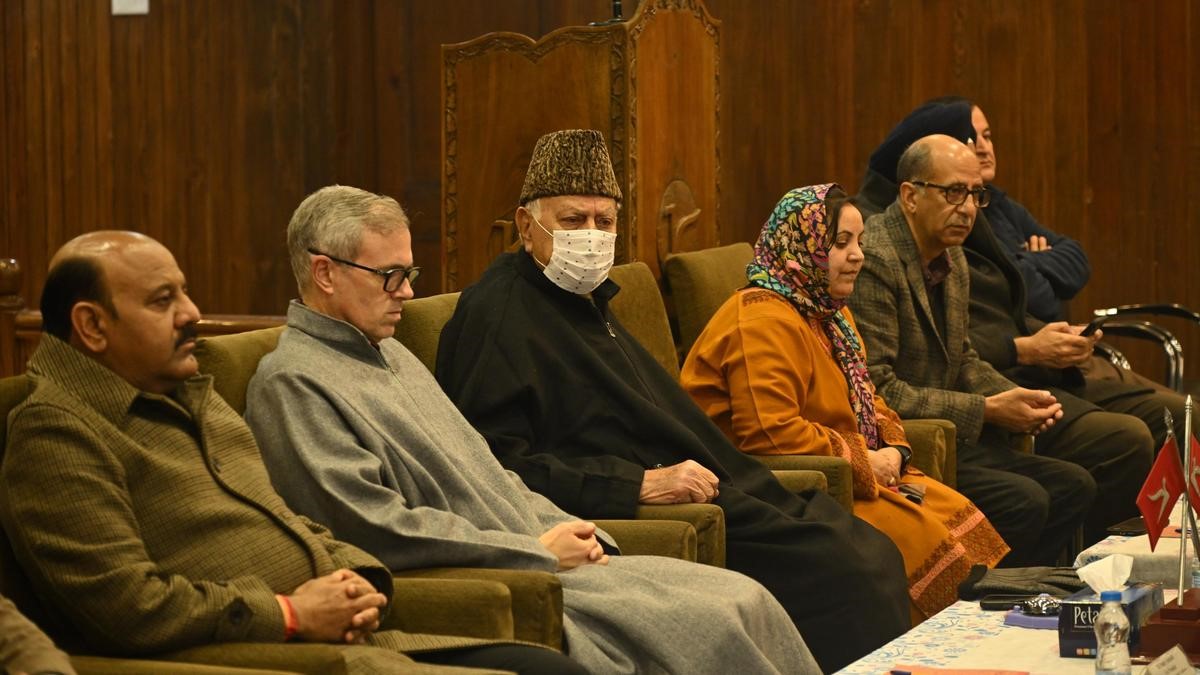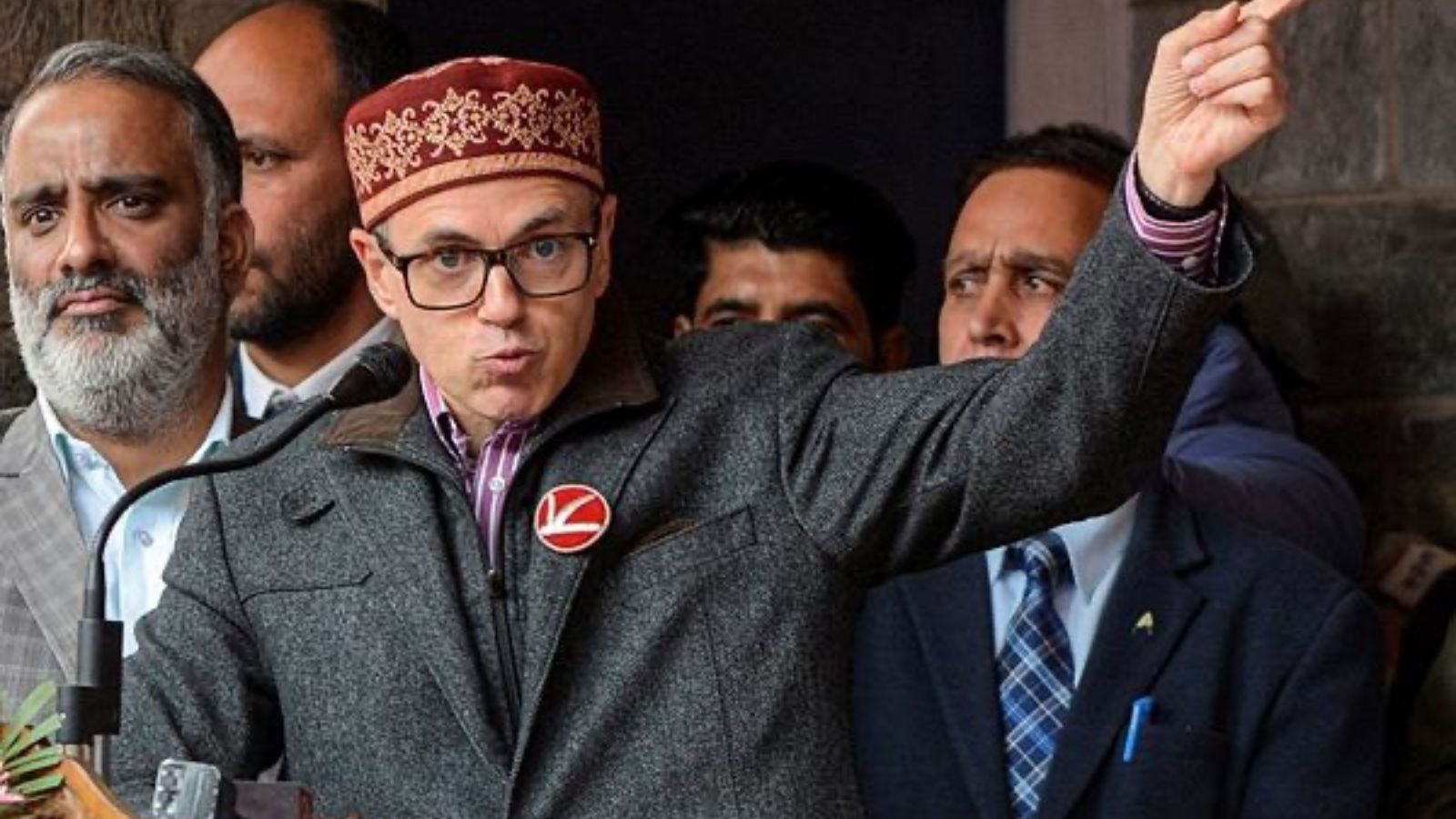National Conference’s Post-Budgam Crisis: Internal Rift, Ruhullah’s Exclusion & Kashmir’s Shifting Political Landscape
By: Javid Amin | 27 November 2025
National Conference’s Two-Day Huddle in Srinagar: What the Budgam Bypoll Setback Reveals About Internal Fault Lines and the Road Ahead
The National Conference (NC), still reeling from a surprising defeat in the Budgam bypoll—an area long considered its ideological and electoral home—has convened a critical two-day Central Working Committee meeting in Srinagar. Headed by party president Dr. Farooq Abdullah and attended by senior leaders including Chief Minister Omar Abdullah, the deliberations go far beyond a routine performance review; they represent a moment of introspection in a party grappling with internal dissent, voter alienation, and a shifting political battlefield.
Why the Meeting Matters: A Party at a Crossroads
The gathering at the Nawa-i-Subh headquarters is more than a post-mortem of a single bypoll loss. For NC, one of Kashmir’s oldest political entities, Budgam was not just a constituency—it was a symbol of continuity and a barometer of public trust. Losing it has triggered urgent questions:
-
Is NC losing grip over traditional bastions?
-
Are younger voters drifting away?
-
Can the leadership manage internal criticism and ideological fragmentation?
-
How will the party reposition itself against the BJP’s expanding influence?
The next few months are crucial for NC, and this meeting signals an attempt to confront mounting pressures before they calcify into long-term structural damage.
Ruhullah’s Exclusion: Symptom of Larger Fault Lines
The most striking development is the conspicuous absence of Aga Syed Ruhullah Mehdi, the Budgam MP known for his ideological assertiveness, independent voice, and growing popularity among urban and semi-urban Shia voters.
Ruhullah himself stated that he was not invited—a departure from tradition since 2002.
What this indicates:
-
Factionalism is widening: Ruhullah’s criticism of NC’s Kashmir policy, especially post-2019, has put him at odds with senior leadership.
-
Ideological tension: His more assertive stance contrasts with NC’s institutional caution.
-
Generational shift: Younger leaders demanding clearer, more transparent political positions are clashing with the old guard.
Whether the exclusion was deliberate or bureaucratic oversight, the perception of marginalization is politically damaging.
Inside the Meeting: What the Leadership Is Trying to Fix
NC’s Central Working Committee is reviewing multiple layers of party functioning:
1. Organizational Weaknesses
Reports suggest poor booth-level coordination, weak local committees, and an absence of continuous engagement with floating voters.
2. Disconnect With Grassroots
Public grievances around unemployment, governance gaps, and post-2020 political drift have eroded support in key districts.
3. Communication Deficit
The party has struggled to build a unified narrative after the August 2019 constitutional changes, often appearing reactive rather than proactive.
4. Failure to Manage Dissent
Ruhullah’s case is not isolated. Several mid-tier leaders have voiced dissatisfaction over strategy, candidate selection, and internal discipline.
The meeting is expected to culminate in a joint resolution acknowledging failures and laying out a recalibration plan.
Political Implications: What This Means for NC Going Forward
1. Diminished Perception of Strength
Budgam was considered “safe”. Losing it sends a message that even loyal constituencies are slipping.
2. Space for Rivals
A divided NC strengthens:
-
PDP in central Kashmir
-
JKPC among Shia pockets
-
BJP in regions where narrative shifts matter more than immediate numbers
3. Kashmir’s New Politics
Post-2019 politics is fundamentally different—more ideological, decentralized, and influencer-driven. Voters want clarity and authenticity, not only legacy.
4. The Credibility Test
How NC deals with:
-
dissent,
-
young voices,
-
internal debate,
-
post-poll transparency
…will determine its credibility ahead of future elections.
Public Perception: Is NC Losing the Narrative?
NC’s long-standing criticism has been its inability to communicate swiftly or decisively. Moments like the Budgam loss, or a public rupture with a high-profile MP, reinforce a narrative that NC is:
-
internally divided
-
slow to reform
-
lacking a cohesive strategy
The two-day meeting is therefore as much about public optics as it is about internal governance.
Conclusion: A Make-or-Break Moment for the National Conference
The Budgam bypoll setback has exposed vulnerabilities that NC can no longer ignore. The party must now choose between:
-
Reasserting old hierarchies, or
-
Reinventing itself for a younger, more politically assertive Kashmiri voter base
How NC resolves the Ruhullah episode, reinvigorates its grassroots machinery, and redefines its post-2019 narrative will determine whether it regains lost ground or continues to cede space in Kashmir’s rapidly evolving political landscape.



